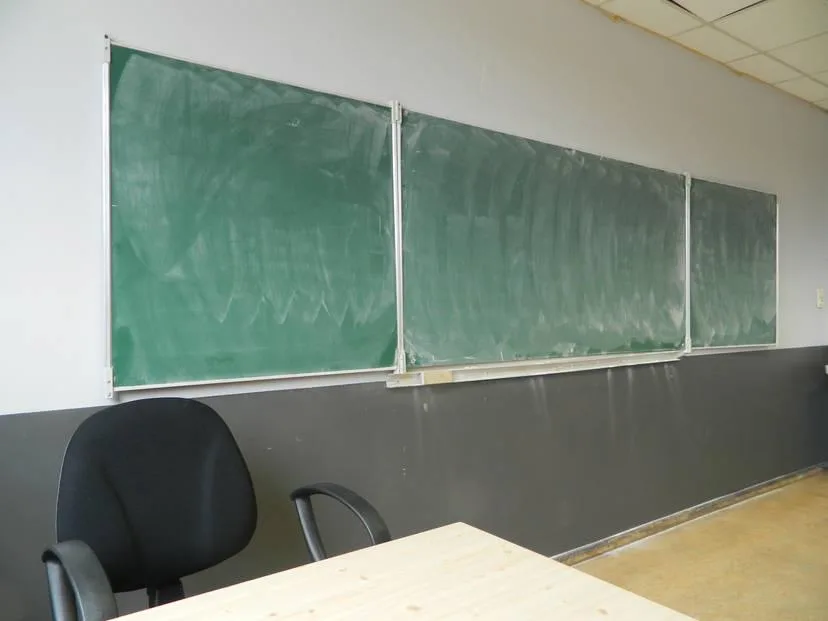Illinois Prison Fired Incarcerated Teacher for Saying Jim Crow Laws Were Racist, Lawsuit Says
The teacher was disciplined after refusing a supervisor’s orders to tell students literacy tests weren’t racist and instead meant to ensure people “knew what they were voting for,” according to the lawsuit.

An incarcerated teacher at an Illinois prison was fired and disciplined for teaching his students about the racist intent of Jim Crow laws, according to a lawsuit filed by a civil rights law firm last month.
The complaint, filed by Uptown People’s Law Center, states that instructor Anthony McNeal was teaching a civics class, as required by state law, at Centralia Correctional Center last March when a student asked about Jim Crow laws. Under the Re-Entering Citizens Civics Education Act, the Illinois Department of Corrections (IDOC) must educate incarcerated people about their voting rights within a year of their release date. The law states that an incarcerated educator must teach the class.
In response to the student’s question, McNeal told the class that poll taxes and literacy tests from the 1940s through the 1960s were used to suppress the Black vote. An IDOC staff member who was supervising the class then intervened, telling McNeal not to discuss racism. Instead, he instructed McNeal to tell students that the literacy test was meant to ensure voters “knew what they were voting for.” This is false. Literacy tests, poll taxes, and other voting restrictions implemented under Jim Crow were racist tools explicitly designed to deny Black Americans suffrage.
McNeal refused to revise his teaching, according to the lawsuit. At the end of class, the staff member, who served as a counselor at the prison, ordered McNeal to turn over his teaching notes. When McNeal refused, the staff member directed an officer to confiscate the materials. The counselor filed a disciplinary report, and on March 8, the Centralia Program Committee found McNeal guilty of charges of insolence, disobeying a direct order, and unauthorized property, according to the complaint. On March 23, the prison warden fired McNeal from his teaching position.
“The peer educator used his views and [unauthorized] property to say it was all about racism to black [sic] people,” the staff member wrote in his disciplinary report, according to the complaint. He went on to express concern that the class would “get out of order” due to the “racist direction” McNeal was leading it down and complained that McNeal had “argued against me in front of my class.”
The lawsuit filed on McNeal’s behalf asserts that the defendants ordered McNeal, a Black person, to “lie to the class and tell them that the literacy tests and poll taxes imposed by southern states prior to the Civil Rights Acts were race neutral.”
When McNeal refused to relay inaccurate information, he was punished “for telling the truth that these laws were intended to (and did in fact) suppress the number of Black people able to vote.” The complaint also accuses the staffer of creating a hostile work environment and discriminating against McNeal on the basis of race, in violation of the Equal Protection Clause of the Fourteenth Amendment. The IDOC did not respond to a request for comment by publication.
The Re-Entering Citizens Civics Education Act, which Democratic Governor J.B. Pritzker signed into law in 2019, requires the IDOC to educate incarcerated people about their voting rights in the year before their release date. An incarcerated person must teach the class, providing students with “nonpartisan information on voting history procedures” and resources on other topics.
While state and local lawmakers and activists have attracted attention in recent years for their attempts to whitewash public school curriculums and ban library books, prisons have a longer history of suppressing incarcerated people’s access to information. In 2019, the warden at Illinois’ Danville Correctional Center prison ordered that publications “of a controversial nature” be removed from the resource room of the Education Justice Project, which ran classes inside the prison.
Prison staff initially removed, among other books, Cornel West’s “Race Matters” and “Colored People: A Memoir,” by Henry Louis Gates Jr. After public outcry, the IDOC issued a directive stating that publications could not be “disapproved solely because its content is religious, philosophical, political, social or sexual content, or because the content is unpopular or repugnant.”
In prior years, Uptown People’s Law Center has sued the IDOC for allegedly banning a book on the Attica uprising and for censoring correspondence and publications mailed by Black and Pink, a prisoners’ rights organization focused on supporting and advocating for incarcerated LGBTQ and HIV-positive people.
